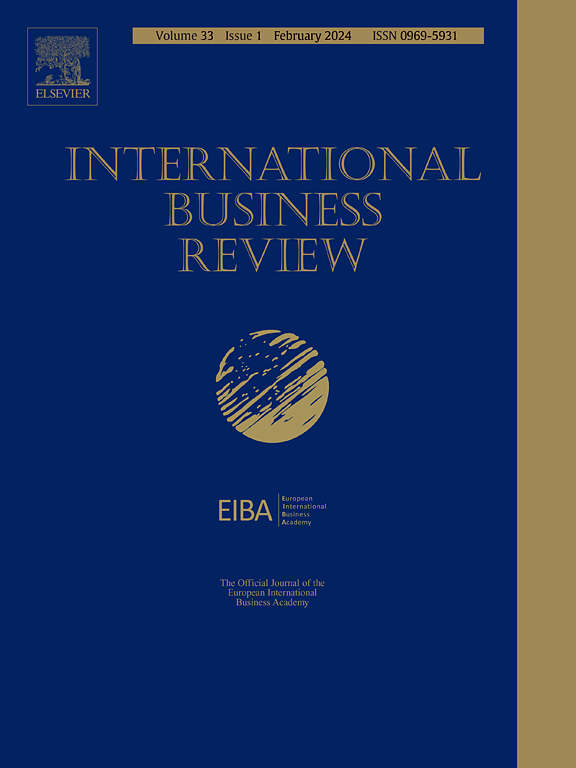Cross-border innovation for global value chain orchestration
IF 6.1
1区 管理学
Q1 BUSINESS
引用次数: 0
Abstract
This study investigates how multinational enterprises (MNEs) leverage cross-border innovation to enhance their capacity for orchestrating global value chains (GVCs). Grounded in systems integration theory, and using the context of the aircraft engine industry of the aerospace sector, we propose that architectural knowledge is imperative for MNEs to orchestrate their GVCs. This leads us to hypothesize that orchestrating MNEs possess a broader technological scope and a wider range of cross-border innovations compared to other firms. Moreover, we demonstrate the rising complexity and interdependency of the sector’s technological system and conjecture that this increases the scope advantage that orchestrating MNEs need over other firms. To test these hypotheses, we analyze a unique longitudinal dataset on formal inter-firm linkages from 2002 to 2014. Our findings provide empirical support for our theoretical predictions.
跨界创新促进全球价值链协调
本研究探讨了跨国企业(MNEs)如何利用跨境创新来提高其协调全球价值链(GVCs)的能力。在系统集成理论的基础上,并利用航空航天领域的飞机发动机行业的背景,我们提出,架构知识对于跨国公司协调其全球价值链是必不可少的。这导致我们假设,与其他公司相比,编排跨国公司拥有更广泛的技术范围和更广泛的跨境创新。此外,我们还展示了该行业技术系统日益增长的复杂性和相互依赖性,并推测这增加了协调跨国公司比其他公司所需的范围优势。为了验证这些假设,我们分析了2002年至2014年企业间正式联系的独特纵向数据集。我们的发现为我们的理论预测提供了实证支持。
本文章由计算机程序翻译,如有差异,请以英文原文为准。
求助全文
约1分钟内获得全文
求助全文
来源期刊

International Business Review
BUSINESS-
CiteScore
14.10
自引率
6.90%
发文量
95
审稿时长
62 days
期刊介绍:
The International Business Review (IBR) stands as a premier international journal within the realm of international business and proudly serves as the official publication of the European International Business Academy (EIBA). This esteemed journal publishes original and insightful papers addressing the theory and practice of international business, encompassing a broad spectrum of topics such as firms' internationalization strategies, cross-border management of operations, and comparative studies of business environments across different countries. In essence, IBR is dedicated to disseminating research that informs the international operations of firms, whether they are SMEs or large MNEs, and guides the actions of policymakers in both home and host countries. The journal warmly welcomes conceptual papers, empirical studies, and review articles, fostering contributions from various disciplines including strategy, finance, management, marketing, economics, HRM, and organizational studies. IBR embraces methodological diversity, with equal openness to papers utilizing quantitative, qualitative, or mixed-method approaches.
 求助内容:
求助内容: 应助结果提醒方式:
应助结果提醒方式:


